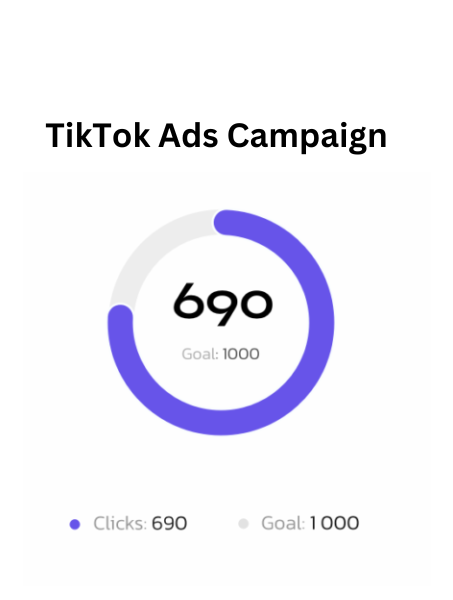SEO for Real Estate Agents
Looking to boost your real estate website’s search rankings and attract more clients? As a real estate agent in today’s digital world, you know the importance of search engine optimization (SEO) for gaining an edge over the competition. But with so many potential strategies, where do you start? Don’t sweat it. In this post, I’ll walk you through the essential SEO tactics that every real estate agent needs to know. These proven tips will help you improve your website’s visibility, connect with more motivated home buyers and sellers, and grow your business. Whether you’re new to SEO or looking to step up your game, you’ll discover actionable strategies to make your site shine brighter in search results. So rev up those rankings and let’s dive into the must-know SEO secrets for real estate agent success!

A partner, not a vendor
Get your free marketing audit
- 30-min strategy call
- In- depth audit
- Growth Roadmap
Why choose nexorank?
If you’re looking for an SEO agency to help boost your real estate website’s visibility, nexorank should be at the top of your list. Experience and Expertise
With over 10 years of experience optimizing real estate websites, nexorank has the expertise to drive qualified traffic and convert leads. Their seasoned SEO strategists stay up-to-date with the latest techniques to outrank the competition.
Location-Based SEO
Nexorank specializes in location-based SEO, optimizing your website for the areas you serve. By incorporating location keywords and creating Google My Business profiles for your agency and agents, nexorank can help you rank higher in local search results.
Holistic Approach
Rather than taking a one-size-fits-all approach, nexorank develops customized SEO strategies based on your business goals and target locations. They look at your whole online presence, including social media profiles and listings on third-party websites, to build a comprehensive SEO campaign.
Proven SEO Services
In addition to on-page optimization and content creation, nexorank offers link building, technical SEO audits, and SEO consulting services. They monitor your rankings and website performance to make data-driven recommendations to improve your SEO.
Affordability and Transparency
Nexorank is upfront about their fees and services, offering flexible pricing options to meet different budgets. They're also transparent in reporting, providing detailed monthly reports that track your rankings, traffic, and other key metrics so you know exactly how your investment is paying off. For real estate SEO that delivers real results, nexorank is an agency you can trust. With their experience, expertise, and holistic approach, nexorank has helped many real estate businesses improve visibility and increase lead generation. If you're ready to outrank the competition, nexorank is ready to help.
Keyword Research for Real Estate Agents
If you want to optimize your real estate website for search engines, conducting thorough keyword research is essential. Using tools like Google Keyword Planner, Moz Keyword Explorer and Semrush, you can find popular keywords related to buying and selling property in your area. Look for keywords with high search volume but less competition. Some examples may be:
- Homes for Sale in [Suburb Name]
This locates potential buyers searching for listings in a specific suburb. Include the full suburb name and ZIP code for best results.
- Real Estate Agents in [City Name]
People searching for an agent in their city are great leads. Optimize for your city or town name along with related terms like “realtor.”
- New Home Developments
Keywords related to new housing estates, apartment complexes or condo developments in your area are valuable, especially if you specialize in new properties.
- Property Management [City Name]
If you offer rental property management, include keywords related to your location. Those searching for a property manager are likely landlords looking to hire your services. By conducting ongoing keyword research, you'll discover new opportunities to optimize your content and rank higher in searches. Update your pages and blog posts with selected keywords, but avoid over-optimizing. Place keywords naturally in your writing, with a mix of short, medium and long tail keywords for the best results. Stay on top of search trends in your area and adap
Implementing Local SEO Tactics
Optimizing your website for local search engine results is key to attracting clients in your area. Local SEO tactics should be a top priority for real estate agents.
Set up profiles for your agency and individual agents on Google My Business, which appears prominently in local search results and on Google Maps. Include your business name, address, phone number, website, and photos. Respond to reviews and encourage happy clients to leave reviews.

Incorporate your city, neighborhoods, zip codes, and other location details into page titles, content, image alt text, and meta descriptions. For example, use “Homes for sale in Austin, TX” rather than just “Homes for sale.” Location is one of the most important factors for real estate, so make sure your location-based keywords are prominent.
Register your business on sites like Yelp, Zillow, Trulia, and Realtor.com. Provide details about your services and listings. Respond to reviews and ratings on these sites. Local citations or mentions of your business name, address, and phone number on other websites also help build credibility and authority.
Networking in your local community can lead to valuable backlinks and word-of-mouth promotion. Sponsor local organizations and events. Join your chamber of commerce and relevant networking groups to make personal connections. Partner with and get referrals from other professionals like mortgage lenders, home inspectors, contractors, and moving companies.
With the majority of local searches happening on mobile devices, your website needs to provide an excellent mobile experience. Ensure your site loads quickly, text is readable, and navigation is easy to use on mobile. Provide location data and click-to-call buttons prominently. Local searchers on mobile often want to contact businesses quickly and easily. By implementing these local SEO best practices, real estate agents can achieve greater visibility in local search results and more business from clients in their community.
Creating Optimized Content for Real Estate Websites
Blog Posts
Writing blog posts is one of the best ways to create optimized content for real estate websites. Focus on topics like home buying tips, mortgage advice, market insights, and neighborhood guides. Incorporate your target keywords and link to relevant property listings or agent profiles on your site. Aim for at least 2 to 3 blog posts per month to keep content fresh.
Property Descriptions
Use descriptive listings with high-quality photos to attract interest from serious homebuyers. Include details like number of rooms, square footage, year built, amenities, and community information. Optimize your listings by including keywords in the title, first paragraph, image filenames, and alt text. Provide a mix of content including sentences of varying lengths, bullet lists when appropriate, and 1-2 paragraphs for each listing.
Resources and Tools
Create useful resources for site visitors such as mortgage calculators, home value estimators, moving checklists, and market reports. These types of tools not only provide value but also give you the opportunity to include keywords and links back to your site. Explain how the resources and tools work to help users get the most out of them. For example, suggest ways they can use a mortgage calculator to determine how much home they can afford.
FAQs
Develop an FAQ page to answer common questions about the home buying and selling process. This is helpful for users and gives you another chance to incorporate keywords. Cover topics like how to get preapproved for a mortgage, differences between list prices and sale prices, and tips for making an offer on a home. Keep answers concise yet comprehensive, using 1 to 3 sentences. Optimizing your content and providing resources for users is key to attracting more qualified leads through search engines and on your website. Focus on topics that will be genuinely helpful for your target audience.
Building Quality Backlinks
Backlinks from reputable websites are like recommendations for your real estate website. They signal to Google that your site is an authority in the industry. However, not all backlinks are created equal. Focus on relevant, high-quality backlinks from trusted sources.
Partner with local businesses, charities, and media organizations in your area. Providing valuable resources or sponsoring community events are great ways to build mutually beneficial relationships. You may be able to secure backlinks on their website or social media profiles. Local partnerships and sponsorships establish you as an active, trustworthy member of the community.
Guest blogging is an effective way to get dofollow backlinks from industry blogs and websites. Pitch well-researched blog posts on trends in the real estate market or tips for buying and selling homes. Make sure the blog’s audience aligns with your target customers. ###Include a brief bio with a link back to your site. High-quality, informative guest posts can become an ongoing source of backlinks as they continue to drive traffic over time.
Local business directories and citation sites are another option. Listings on sites like Yelp, Homes.com, and your local Chamber of Commerce website typically include a link back to your official website. ###Keep all directory listings up to date with your current business information and website URL. Consistently showing up in relevant local searches and directories helps to build your credibility.
Avoid low-quality link building tactics like link farms, paid links, and comment spam. These “black hat” techniques can negatively impact your search rankings and credibility. Focus on relationship building, community engagement, and providing value to your audience. Building a solid foundation of high-quality backlinks will serve you well in the long run.

Our Working Process

The best brands choose Nexorank International SEO Agency
Blog
Think further with our expert insights
FAQ
SEO for Real Estate Agents FAQs
Absolutely. Implementing SEO best practices is crucial for improving visibility and attracting potential clients to your website. By optimizing your content for relevant keywords and providing a great user experience, you can rank higher in search results and gain more traffic and leads.
To keep your website fresh and relevant, aim to update content regularly. Add new blog posts at least once a month, update listings as properties become available, and provide market updates and insights quarterly or biannually. Frequent updates signal to Google that your site is active and contains current information.
For real estate agents, local SEO is most important. Since you service clients in a specific geographic area, optimize your website for location-based keywords like “homes for sale in [city name]” or “real estate agents in [zip code].” Create location pages, Google My Business listings, backlinks from local directories, and engage your local audience on social media. National SEO may be secondary.
Backlinks from reputable websites help build authority and improve search rankings. Some ways to gain quality backlinks include:
Guest blogging on industry websites and local blogs
Creating partnerships with local businesses
Listing your agency on directories like Yelp, Zillow, Realtor.com and your local Chamber of Commerce
Networking and building relationships with other real estate professionals
Creating resources or tools that other websites may link to
Avoid low-quality link building tactics like link farms, paid links, and link spamming. Focus on earning links from authoritative websites through providing value.
For the best results, use a combination of both paid advertising and organic search optimization. Pay-per-click ads and social media advertising can drive immediate traffic and leads to your website. SEO helps build long-term visibility and authority. Together, paid and organic strategies provide short and long-term benefits for real estate marketers.





